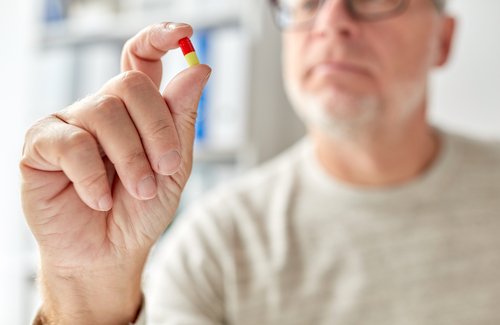A combination of NewLink Genetics‘ immunotherapy indoximod and the cancer vaccine Provenge more than doubled the time it took for an advanced cancer patient’s disease to progress, compared with Provenge alone, according to a Phase 2 clinical trial.
The study applied to metastatic castration resistant prostate cancer, or mCRPC. The disease-progression yardstick researchers used was the time it took patients to have their cancer progress.
Dr. Gautam G. Jha, an adjunct cancer professor at the University of Minnesota School of Medicine, presented the findings at the American Society of Clinical Oncology annual meeting in Chicago, June 2-6. The poster session was titled “A phase II randomized, double-blind study of sipuleucel-T followed by IDO pathway inhibitor, indoximod, or placebo in the treatment of patients with metastatic castration resistant prostate cancer (mCRPC).”
Indoximod inhibits an enzyme that prevents immune-system T-cells from mounting a proper response to an invader. The enzyme, IDO (indoleamine dioxygenase), degrades an amino acid called tryptophan that is essential to normal T-cell response.
By inhibiting IDO, indoximod improves T-cell immune response against cancer cells, NewLink Genetics said.
Researchers are testing a combination of indoximod and Provenge as a treatment for mCRPC in a multi-center, randomized Phase 2 trial (NCT01560923). Provenge (sipuleucel-T) is a cancer vaccine developed by Dendreon.
The 46 patients in the study were vaccinated with Provenge, then randomized to receive orally administrated indoximod or a placebo twice a day for up to six months.
The median radiographic progression-free survival rate in the combo group was 10.3 months, versus 4.1 months in the group treated with Provenge alone. The results were similar to what researchers reported in the Phase 3 IMPACT study (NCT00065442).
All 35 patients who completed the Phase 2 trial had similar increases in the prostate cancer biomarker PSA, or prostate-specific antigen. In addition, all patients mounted an immune response to the cancer-related antigen PA2024, an indication that Provenge was effective. An antigen is a molecule capable of triggering an immune response.
Indoximod proved safe, and patients were able to tolerate it, researchers said. The combo group and Provenge-only group had similar rates of adverse events.
“Given that Provenge alone has not shown any PFS [progression-free survival] benefit in multiple prior studies, this randomized, placebo-controlled data, although limited in number of patients, is quite encouraging and has the potential to offer some measurable clinical benefits for patients,” Jha, who was the principal investigator of the Phase 2 trial, said in a press release.
A key lesson from the study was that Prvvenge can be combined with other agents to improve the outcomes of patients with mCRPC, researchers said.
“These results are additional evidence that indoximod has the potential to improve outcomes for patients in combination with therapies beyond the established checkpoint inhibitors,” said Dr. Charles J. Link Jr., chairman and CEO of NewLink Genetics.

